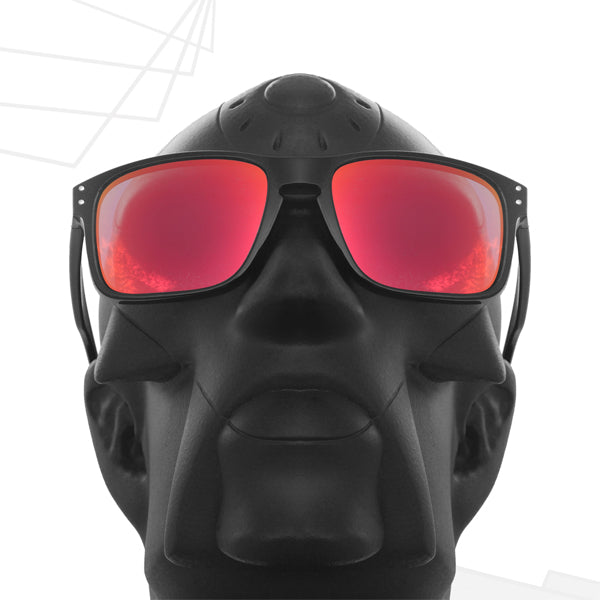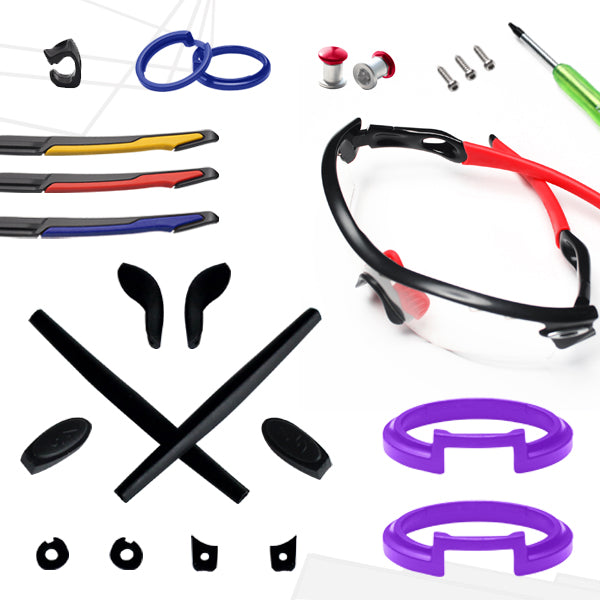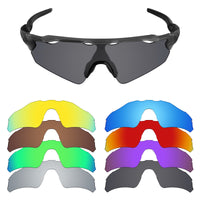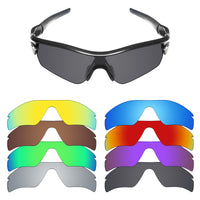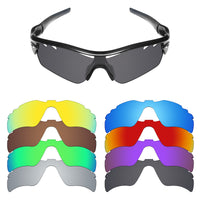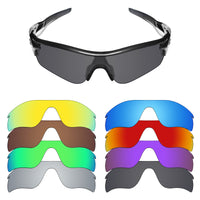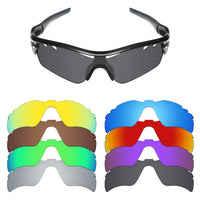-
Shop
Sunglass Replacement LensesFeatured Brands
- For Wiley X
- For Oakley
- For Arnette
- For Bolle
- For Costa Del Mar
- For Dragon The Jam
- For Electric
- For Maui Jim
- For Nike
- For Ray-Ban
- For Revo
- For Rudy Project
- For Smith
- For Spy Optic
- For Von Zipper
AccessoriesWhat's Hot- Rubber Kits
- Sunglass Parts
- Screws & Screwdrivers
- Eyeglass Parts
- Cleaning & Storage
- Search
- Accessories
-
LensesHOT
Top Sunglass ModelsFit for Oakley
- Antix
- Batwolf
- Bottle Rocket
- Crossrange
- EVZero Path
- Fives Squared
- Flak 2.0 XL
- Flak Jacket XLJ
- Frogskins
- Frogskins Lite
- Fuel Cell
- Gascan
- Half Jacket 2.0
- Holbrook
- Jawbreaker
- Latch
- Mainlink
- Oil Rig
- Racing Jacket
- Radar EV Path
- Radar Path
- Si Ballistic Det Cord
- Sliver
- Tailend
- Thinlink
- Turbine
- Turbine Rotor
- Twoface
- Twoface XL
New Arrival - PrescriptionNEW
-
Accessories
-
Contact Us
When it comes to sunglasses, there is much debate about which type of lens is better: tinted or polarized. Both are designed to reduce glare and protect your eyes from the sun's damaging UV rays, but they do so in different ways. In this blog, we will explore the advantages of tinted lenses and polarized lenses, as well as their distinctions, to help you decide which one is the best choice for you.
How Tinted Lenses Work
Tinted lenses work by blocking out certain wavelengths of light. The tint of the lens is determined by the amount of light that is blocked out. For example, a brown-tinted lens will block out more blue light than a grey-tinted lens. This helps to reduce glare and improve contrast, making it easier to see in bright light conditions. Tinted lenses can also help reduce eye strain and fatigue and protect from UV rays.
The Benefits of Tinted Lenses:
-
Improves comfort
Tinted lenses reduce glare and eye strain, which is particularly beneficial for people who spend a lot of time outdoors or in front of a computer screen.
-
Enhanced visual performance
Tinted lenses improve contrast and depth perception, making it easier for athletes and people working in hazardous environments to see in low light conditions.
-
UV protection
Tinted lenses protect your eyes from long-term damage by blocking harmful UV rays.
-
Improved appearance
Tinted lenses can give you a more stylish look and can even be used to correct colour vision defects.
How Polarized Lenses Work
Polarized lenses are designed to reduce glare from surfaces such as water, snow, and glass. They work by blocking out light waves that are horizontally polarized, while allowing vertically polarized light waves to pass through. This helps reduce the amount of glare that reaches the eyes, allowing for better visibility and less eye strain. Polarized lenses also help enhance color and contrast, making it easier to see objects in bright light.
The Benefits of Polarized Lenses:
-
Reduced glare
Polarised lenses reduce glare from reflective surfaces such as water, snow and glass, making them ideal for outdoor activities such as fishing, skiing and driving.
-
Enhanced clarity
Polarised lenses can help improve clarity by reducing the amount of scattered light reaching the eye, helping to improve visibility in bright conditions and making it easier to see distant objects.
-
Enhanced UV protection
Polarised lenses can block up to 99% of UV rays, helping to protect your eyes from the sun's harmful rays.
-
Improved contrast
Polarised lenses can help improve contrast by reducing glare and reflections, making it easier to see distant objects.
As can be seen from the above features, there are many similarities between tinted lenses and polarized lenses, they are both designed to protect your eyes from the sun’s harmful UV rays, but they have some distinct differences.
The Differences between Tinted Lenses and Polarized Lenses:
- Tinted lenses are designed to reduce the amount of light that enters the eye by absorbing some of the light, while polarized lenses are designed to reduce the amount of light that enters the eye by blocking certain wavelengths of light.
- Polarized lenses are designed to reduce glare from reflective surfaces, while tinted lenses are not.
- Polarized lenses can block up to 99% of UV rays, while tinted lenses can block out some UV rays.
- Polarized lenses are more expensive than tinted lenses. Tinted lenses are typically used for fashion purposes, while polarised lenses are used for outdoor activities such as fishing, skiing, and driving.
Conclusion
In conclusion, polarized and tinted lenses both provide protection from the sun's harmful UV rays, but they differ in how they do so. Polarized lenses are designed to reduce glare, while tinted lenses are designed to reduce the amount of light that passes through the lens. Both types of lenses can be beneficial for outdoor activities, but it is important to choose the right type of lens for your specific needs.
Leave a comment

